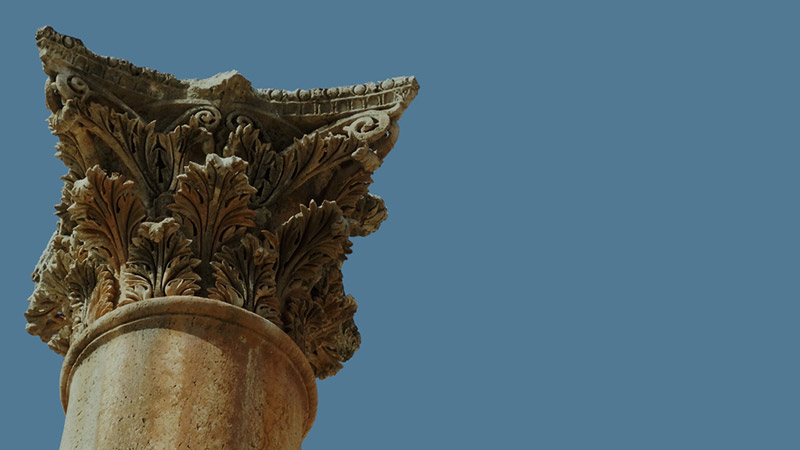More Results
Showing 12 of 80
Articles

Joy of Living Water
THE JOY OF LIVING WATER: JESUS AND THE FEAST OF SUKKOT' With joy you will draw water from the wells of salvation. (Isa. 12:3)Water was of great importance to the people of the Bible. They lived in a dry country, completely dependent on the season...
MORE
Light to the World
Light To The WorldIsrael was called "an olive tree, leafy and fair," because they shed light on all. Ancient Jewish Commentary on Jer. 11:16Olive trees and the abundance of oil they produce were significant in the lives of the people of ...
MORE
Living Water (En Gedi)
Water in the WildernessThe waters of En Gedi provide a cool and refreshing refuge amidst the barren Judean Wilderness.Barely one hundred feet from the desolate wilderness, the oasis of En Gedi supports lush green growth. Nearby, a spring of water ...
MOREEncyclopedia

Megiddo
Megiddo stands on the southern edge of the Jezreel Valley and is probably the most famous battlefield in the world. In biblical times, Megiddo was one of three cities that guarded the Via Maris trade route. Standing near a critical mountain pass, ...
MORE
Mount Hermon
This high mountain range reaches more than 9,000 feet above sea level, is 28 miles in length, and is more than 10 miles wide. It is covered with snow more than eight months a year. Water from melting snow is the main source of water for the Jordan...
MORE
Olive Crusher
This olive installation is located at the modern-day city of Maresha in southern Judea. Its appearance and location in a cave are typical of ancient presses. Oil installations were commonly placed in caves because the more moderate temperatures im...
MORE
Olive Tree Imagery
The olive tree is one of the plants most frequently mentioned in the Bible. Scripture writers used olive tree imagery to describe Jesus' Jewish roots and the relationship of Jews and Gentiles.When an olive tree gets very old (often hundreds of yea...
MORE
Olive Trees
The olive tree is known for its beauty (Hosea 14:6) partially because its large ancient trunk often has the look of a productive past. Furthermore, one side of the tree's leaves are light green and the other, a much lighter green, give the leaves ...
MORE
Paths
The Negev Wilderness of Israel and the eastern areas along the Rift Valley are terraced with a myriad of paths. Some of the paths on the hillsides have an occasional connecting diagonal track to other paths. These tracks were created by wild anima...
MOREGlossary

Jordan River Definition
Hebrew Yarden, meaning, "the descender." Headwaters are fed by snow melt on Mount Hermon and underground springs; flows into the Dead Sea; where John baptized Jesus. Largest river in Israel.
MORE
Kidron Valley Definition
Deep wadi forming the eastern border of Jerusalem between David's City and the Mount of Olives. The spring of Gihon and the garden of Gethsemane are in this valley.
MORE
Olive Crusher Definition
The stone basin used to crush olives into pulp. A donkey pushed on a horizontal beam, which in turn rolled a millstone that crushed into a pulp ripe olives placed in a large, round basin. An olive crusher was often placed in a cave, where the mode...
MORE

















